Imagine the heart of a jet engine, roaring with flames and enduring unimaginable heat and pressure. That’s the world of superalloys, a class of materials specifically designed to thrive in such hostile conditions. And within this elite group, IN738LC stands out as a true champion.
This article delves deep into the world of IN738LC, exploring its composition, properties, applications, and the specific metal powder variations available for cutting-edge additive manufacturing processes.
IN738LC: A Nickel-Based Superstar
What is IN738LC?
IN738LC, often simply referred to as IN738, is a nickel-based superalloy. That means nickel forms the foundation, but other elements like chromium, cobalt, and niobium are strategically added to create a material with extraordinary characteristics.
Key Properties of IN738LC
Here’s what makes IN738LC the go-to material for extreme environments:
- Exceptional High-Temperature Strength: Think of IN738LC like a tireless athlete. Even at scorching temperatures exceeding 1100°C (2012°F), it retains its remarkable strength, making it ideal for components that face intense heat.
- Superior Creep Resistance: Imagine a metal slowly stretching under constant stress. That’s creep, and IN738LC resists it exceptionally well. This property is crucial for parts that endure prolonged high temperatures, preventing them from warping or losing shape.
- Excellent Oxidation Resistance: High temperatures often come hand-in-hand with oxygen, which can rapidly deteriorate metals. IN738LC forms a tenacious oxide layer that acts as a shield, significantly slowing down this destructive process.
- Good Thermal Fatigue Resistance: Imagine a metal part constantly expanding and contracting due to temperature fluctuations. This thermal cycling can lead to fatigue cracks. IN738LC demonstrates impressive resistance to this phenomenon, ensuring longer component lifespans.
- Weldability: Unlike some superalloys, IN738LC can be welded using specialized techniques. This allows for the fabrication of complex components from multiple parts.
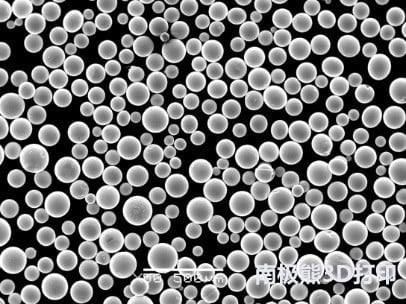
Composition of IN738LC
The magic of IN738LC lies in its carefully balanced composition. Here’s a typical breakdown of its key elements:
| องค์ประกอบ | เปอร์เซ็นต์น้ำหนัก | บทบาท |
|---|---|---|
| นิกเกิล (Ni) | Base | Foundation of the alloy, providing overall strength and ductility. |
| โครเมียม (Cr) | 15-17 | Improves high-temperature strength and oxidation resistance. |
| โคบอลต์ (Co) | 17-19 | Enhances high-temperature strength and creep resistance. |
| ไนโอเบียม (Nb) | 2.5-3.5 | Forms strengthening precipitates that contribute to high-temperature strength. |
| โมลิบดีนัม (Mo) | 2-3 | Improves strength and high-temperature performance. |
| ไทเทเนียม (Ti) | 1-1.5 | Aids in grain refinement and strengthening. |
| อลูมิเนียม (Al) | 0.7-1.2 | Improves oxidation resistance. |
| ซิลิคอน (Si) | 0.2 max | Promotes grain refinement and deoxidation. |
| คาร์บอน (C) | 0.1 max | Strengthens the alloy but needs careful control to avoid embrittleness. |
Applications of IN738LC
IN738LC’s unique properties make it a highly sought-after material for various demanding applications:
| แอปพลิเคชัน |
|---|
| Gas Turbine Engines: Turbine blades, vanes, combustor liners, and afterburner components all benefit from IN738LC’s exceptional high-temperature strength, creep resistance, and oxidation resistance. |
| การบินและอวกาศ: From hot sections of jet engines to airframe components exposed to high temperatures, IN738LC’s strength and heat tolerance make it a valuable asset. |
| Industrial Gas Turbines: Power generation turbines operating at high temperatures and pressures rely on IN738LC for its durability and resistance to harsh environments. |
| Petrochemical Industry: Components in high-temperature reactors and processing equipment benefit from IN738LC’s ability to withstand extreme conditions. |
Metal Powder Variations for Additive Manufacturing
With the rise of additive manufacturing (3D printing), IN738LC has found a new lease on life. Here are some specific metal powder variations available for creating complex components using this technology:
- AM-SEAM IN738LC: This gas-atomized powder boasts excellent flowability and packing density, making it ideal for intricate geometries.
- EOS NickelAlloy IN738LC: This laser-optimized powder from EOS GmbH is designed specifically for their additive manufacturing systems, ensuring consistent printability and high-quality results.
- SLM Solutions IN738LC: This powder from SLM Solutions is tailored for their selective laser melting machines, offering excellent mechanical properties after post-processing.
- AP&C IN738LC: This powder from Additive Manufacturing Powders (AP&C) caters to a broad range of additive manufacturing processes, providing a versatile option for users.
- Höganäs IN738LC: This gas-atomized powder from Höganäs AB delivers superior flow characteristics and a tight particle size distribution, enabling the creation of intricate features.
Beyond the Big Names: Emerging Metal Powder Suppliers
While established players dominate the market, smaller companies are making their mark with innovative IN738LC metal powders:
- Potter & Brumfield IN738LC: This offering from Potter & Brumfield caters to specific customer requirements and can be customized for various additive manufacturing applications.
- Exone IN738LC: Exone, known for their InnovateAM printers, also offers IN738LC metal powder specifically optimized for their machines.
- Additive Industries IN738LC: This company, specializing in metal binder jetting additive manufacturing, provides IN738LC powder formulated for their unique printing process.
- Elementum 3D IN738LC: Elementum 3D, a leading name in metal powder production, offers IN738LC powder known for its high purity and consistent quality.
- Custom Engineered IN738LC Powders: Several companies cater to the growing demand for customized metal powders. They can tailor particle size, morphology, and chemical composition to meet specific application needs.
Choosing the Right IN738LC Metal Powder
With so many options, selecting the ideal IN738LC metal powder hinges on several factors:
- Additive Manufacturing Process: Different 3D printing techniques have varying powder requirements. Consider factors like powder flowability, laser absorptivity (for laser-based methods), and particle size distribution.
- Desired Properties: The post-processing techniques used can significantly influence the final properties of the printed component. Choose a powder that offers the potential to achieve your desired strength, ductility, and other performance characteristics.
- Machine Compatibility: Ensure the chosen powder is compatible with your specific additive manufacturing system for optimal printing results.
- Supplier Reputation: Look for reputable suppliers with a proven track record of providing high-quality, consistent metal powders.
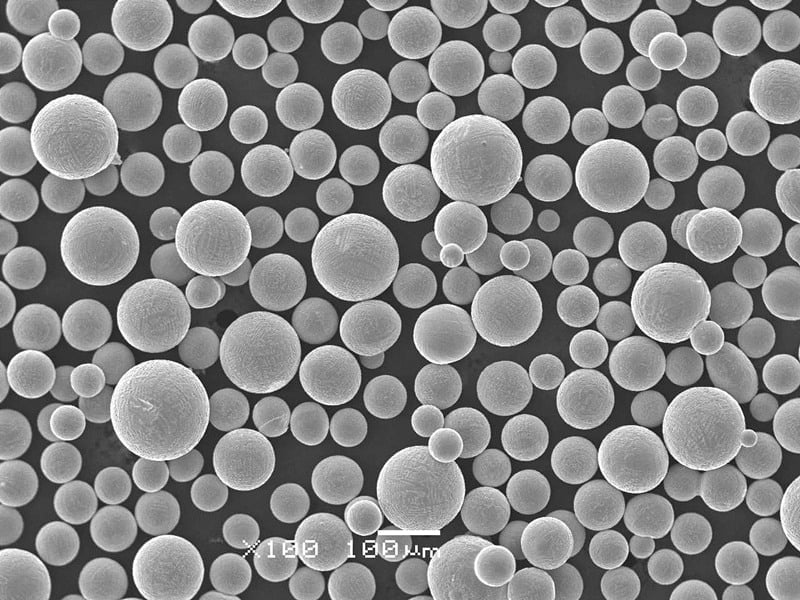
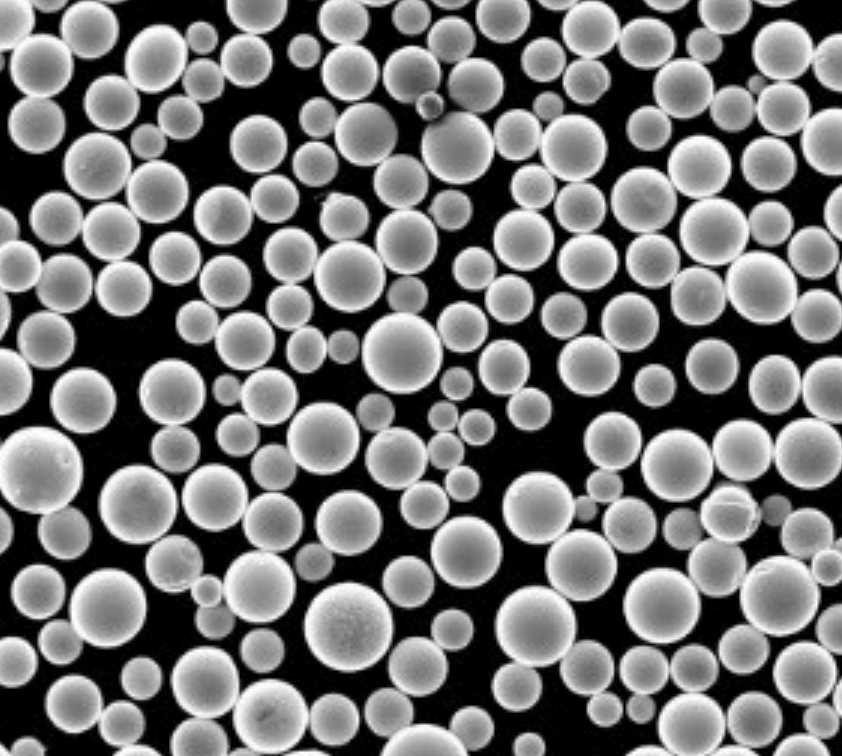

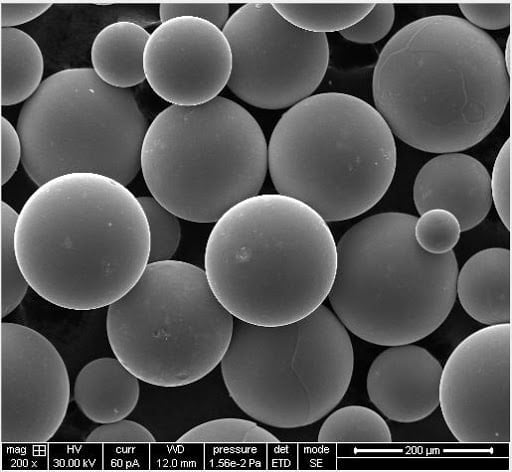
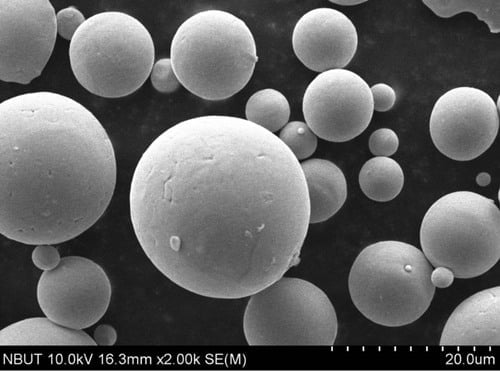
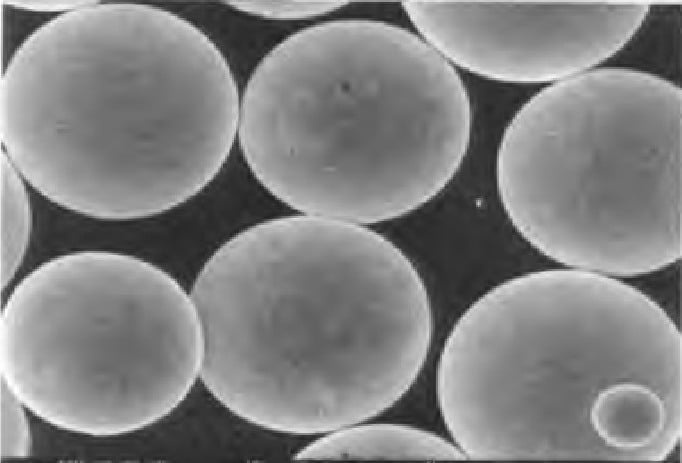
Advantages and Limitations of IN738LC
Advantages of IN738LC
- Excellent High-Temperature Performance: As discussed earlier, IN738LC excels in environments where other materials would succumb to heat. This makes it irreplaceable for various demanding applications.
- Good Weldability: While welding superalloys can be challenging, IN738LC offers better weldability compared to some of its counterparts. This allows for the creation of complex parts from multiple welded sections.
- Versatility: IN738LC finds applications across diverse industries, from aerospace and power generation to petrochemical processing. Its adaptability makes it a valuable material for various engineering challenges.
- Additive Manufacturing Compatibility: The availability of IN738LC metal powders opens doors for creating intricate components using 3D printing. This allows for design freedom and weight reduction in certain applications.
Disadvantages of IN738LC
- High Cost: The complex manufacturing process and the use of expensive raw materials contribute to the relatively high cost of IN738LC.
- ความหนาแน่น: Compared to some other materials, IN738LC is denser, which can be a drawback in weight-critical applications.
- Machinability: Machining IN738LC can be challenging and requires specialized tooling due to its inherent strength.
- Post-Processing Requirements: To achieve optimal mechanical properties, IN738LC components often require post-processing steps like heat treatment, adding to the overall production time and cost.
Applications of IN738LC Superalloy
Gas Turbine Engines: Delving deeper, let’s explore how IN738LC breathes life into gas turbine engines. The relentless heat generated during combustion puts immense stress on turbine blades and vanes. IN738LC’s exceptional high-temperature strength ensures these components retain their shape and structural integrity, enabling the engine to function efficiently. Furthermore, its resistance to creep prevents excessive deformation over time, guaranteeing long-lasting performance.
Beyond Turbine Blades and Vanes: IN738LC’s contributions to gas turbine engines extend beyond just the turbine section. Here are some other crucial components that benefit from this remarkable material:
- Combustor Liners: The combustor is the heart of the engine, where fuel is burned to generate hot gases. IN738LC’s excellent resistance to high temperatures and oxidation makes it ideal for combustor liners, which withstand the brunt of the combustion process.
- Afterburner Components: For jet engines requiring extra thrust, afterburners are employed. These components operate at even higher temperatures than the combustor, and IN738LC’s exceptional heat tolerance makes it a vital material for afterburner parts.
- Exhaust Systems: The hot exhaust gases exiting the engine can take a toll on exhaust system components. IN738LC’s strength and resistance to high temperatures ensure the durability of these parts.
Aerospace Applications: The relentless pursuit of efficiency and performance in aerospace pushes the boundaries of material science. IN738LC plays a vital role in various aircraft components:
- Exhaust Nozzles: Similar to their counterparts in jet engines, exhaust nozzles in aircraft experience extreme temperatures. IN738LC’s ability to withstand such harsh conditions makes it a go-to material for these critical components.
- Afterburner Components: For military aircraft requiring extra thrust during takeoff or combat maneuvers, afterburners are essential. IN738LC’s presence in these components ensures they can handle the immense heat generated.
- Airframe Structures: While not as widespread as in high-temperature sections, IN738LC can be strategically used in specific airframe components exposed to elevated temperatures, such as those near engines or within high-speed sections experiencing aerodynamic heating.
Industrial Gas Turbines: The relentless demand for power generation necessitates robust and reliable turbines. IN738LC plays a key role in ensuring smooth operation:
- Turbine Blades and Vanes: Just like in jet engines, IN738LC’s exceptional high-temperature strength and creep resistance make it a mainstay material for turbine blades and vanes in industrial gas turbines.
- Combustor Liners: Similar to aircraft jet engines, industrial gas turbines also rely on IN738LC for combustor liners due to its ability to withstand the intense heat and harsh environment within the combustion chamber.
- Hot Gas Manifolds: These channels convey the hot gases from the combustor to the turbine section. IN738LC’s strength and heat resistance make it suitable for these critical components.
Petrochemical Industry: The world of petrochemicals involves various processes that occur at extreme temperatures and pressures. IN738LC steps up to the challenge in several ways:
- Reactor Vessels: Chemical reactions in the petrochemical industry often require high temperatures. IN738LC’s ability to maintain its strength and structural integrity at such elevated temperatures makes it valuable for reactor vessel construction.
- Heat Exchangers: Transferring heat efficiently is crucial in many petrochemical processes. IN738LC’s combination of strength and good thermal conductivity makes it suitable for heat exchanger components that handle high temperatures.
- Piping Systems: Certain segments of piping systems within petrochemical plants handle hot, corrosive fluids. IN738LC’s strength and resistance to high temperatures, along with its appropriate corrosion-resistant variants, can be employed for such applications.
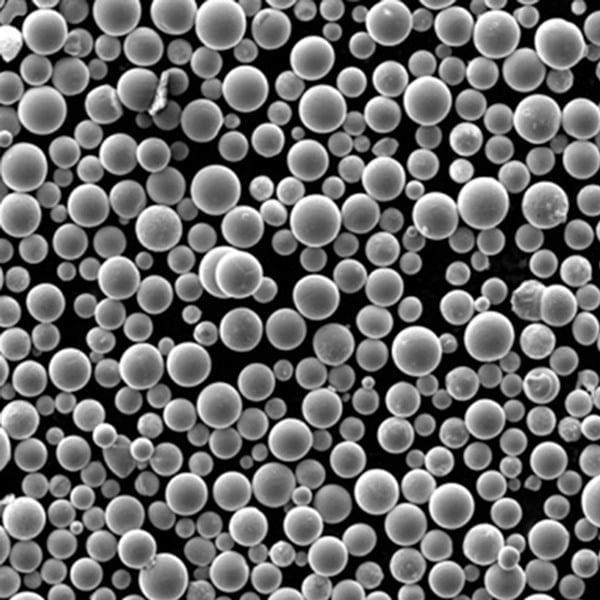
Specifications, Sizes, Grades, and Standards
IN738LC comes in various forms to cater to diverse application needs. Here’s a breakdown of some key specifications:
- Product Forms: IN738LC is typically available as wrought products (bars, plates, sheets) and metal powders for additive manufacturing.
- Sizes: The specific size range varies depending on the product form and supplier. Wrought products can range from millimeters to centimeters in thickness and meters in length. Metal powder particle size is typically measured in micrometers ( microns).
- เกรด: There can be slight variations in the composition of IN738LC depending on the manufacturer and specific application requirements. However, the core properties remain consistent.
- Standards: IN738LC typically complies with international aerospace standards like AMS 5667 and national standards like ASTM B904.
ซัพพลายเออร์และราคา
Due to the complex manufacturing process and the use of valuable elements, IN738LC can be a relatively expensive material. The cost can vary depending on the product form (wrought products versus metal powder), quantity, and supplier. Consulting with reputable suppliers is recommended to obtain the most current pricing information.
Here’s a table summarizing some of the key suppliers mentioned earlier:
| ซัพพลายเออร์ | Website | Products Offered |
|---|---|---|
| EOS GmbH | https://www.eos.info/ | EOS NickelAlloy IN738LC metal powder |
| SLM Solutions | https://nikon-slm-solutions.com/ | SLM Solutions IN738LC metal powder |
| AP&C Additive Manufacturing Powders | https://www.kennametal.com/us/en/products/additive-manufacturing/metal-powders-for-additive-manufacturing.html | AP&C IN738LC metal powder |
| Höganäs AB | https://www.hoganas.com/en/ | Höganäs IN738LC metal powder |
| Potter & Brumfield | https://www.te.com/en/products/brands/potter-brumfield.html | Potter & Brumfield IN738LC metal powder |
| Exone | https://www.exone.com/ | Exone IN738LC metal powder |
| Additive Industries | https://www.additiveindustries.com/ | Additive Industries IN738LC metal powder |
| Elementum 3D | https://www.elementum3d.com/ | Elementum 3D IN738LC metal powder |

คำถามพบบ่อย
Q: How does IN738LC compare to other superalloys?
A: IN738LC offers a good balance between high-temperature strength, creep resistance, and weldability. Compared to some other superalloys, it might not be the absolute best in every single category. However, its overall versatility and good performance across various aspects make it a popular choice for diverse applications.
Q: Can IN738LC be machined?
A: Yes, IN738LC can be machined, but due to its inherent strength, it requires specialized tooling and expertise. Compared to softer materials, machining IN738LC can be more time-consuming and expensive.
Q: Are there any alternatives to IN738LC?
A: Depending on the specific application requirements, other superalloys like Inconel 625, Haynes 282, or even advanced ceramics could be potential alternatives. Each material has its own unique set of properties, so a careful evaluation considering factors like temperature, strength requirements, and cost is crucial.
Q: What are the future prospects for IN738LC?
A: With the ongoing advancements in additive manufacturing, IN738LC is expected to play an even more significant role in the future. The ability to create complex, lightweight components using 3D printing opens doors for innovative designs in various industries. Additionally, research on improving the processing techniques and potentially even the material composition itself is ongoing, further enhancing the capabilities of IN738LC.
About 3DP mETAL
Product Category
ติดต่อเรา
มีคำถามอะไรไหม? ส่งข้อความมาเดี๋ยวนี้! หลังจากที่ได้รับข้อความแล้ว เราจะประมวลผลคำขอของคุณพร้อมทีมงานทั้งหมด
